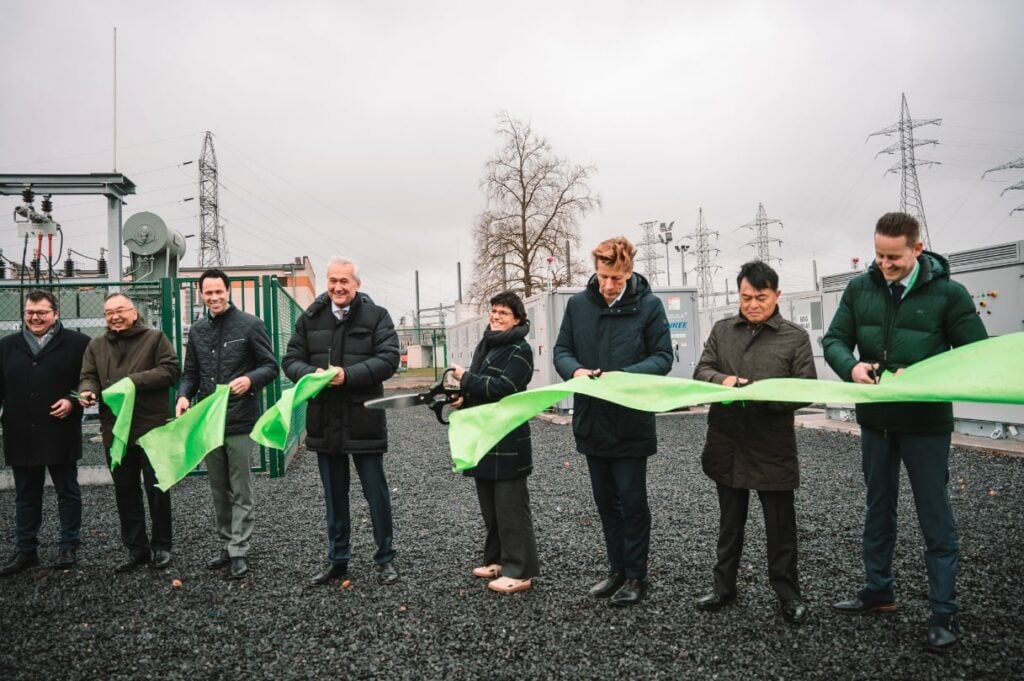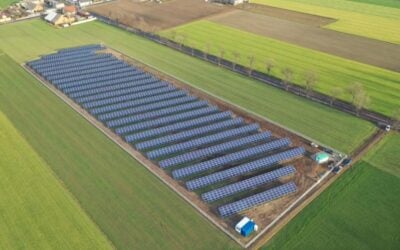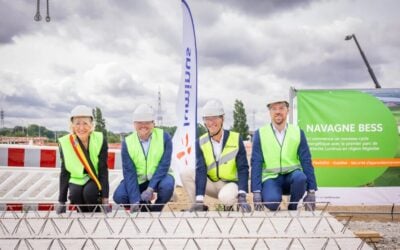
New-build battery storage projects from three developers totalling 357MW were among resources awarded contracts in Belgium’s latest capacity market auction.
Belgian grid operator Elia announced the results of its Capacity Remuneration Mechanism (CRM) auction just before the end of October. The auctions aim to maintain security of electricity supply over a four-year period (Y-4) and are contracted ahead of time, with the most recent being for the 2027-2028 delivery year.
Enjoy 12 months of exclusive analysis
- Regular insight and analysis of the industry’s biggest developments
- In-depth interviews with the industry’s leading figures
- Annual digital subscription to the PV Tech Power journal
- Discounts on Solar Media’s portfolio of events, in-person and virtual
Elia said that 22 projects took part, adding up to 1,576MW. All projects bidding in the auction were successful, and although natural gas resources comprised the majority of bids, there was also a significant number of 4-hour duration battery energy storage system (BESS) projects in the mix.
That includes a mix of new-build and existing battery storage, and a handful of small-scale BESS totalling 25MW/100MWh alongside 560MW/2,240MWh large-scale or utility-scale projects.
The aforementioned 375MW of new-build is included here, each awarded 15-year contracts with the transmission system operator (TSO), as well as the remainder being existing projects.
Developers awarded new-build contracts were Storm, a Belgian wind farm developer diversifying into the new technology, which won three contracts of 60MW, 120MW and 25.2MW; Electrabel, a Belgian subsidiary of ENGIE which won two contracts of 55.51MW each; and Innotech, an electricity and heating services provider which won 40.8MW.
The annual auctions began in October 2021. After the first round, which was for the 2025-2026 delivery period, head of analysis at consultancy Clean Horizon Corentin Baschet told Energy-Storage.news that the award of contracts to 130MW/540MWh of BESS, all new-build, was a sign that the country’s energy storage market was maturing.
Baschet noted that while those assets would only earn €11,400 (at that time US$12,820) per MW/year, equal to roughly 7% of the revenues each would need to break even, the contracts were a nice bonus or “cherry on the cake” of a business case for BESS.
The long-term revenue certainty they offered for what would largely be an opportunity which required no additional cycling of the battery would be helpful to developers and investors, who would be looking to stack revenues from a number of different opportunities, Baschet said.
Those other revenue streams include ancillary services opportunities in the frequency control reserve (FCR) and secondary reserve markets. The latter offers high enough prices that “it would be stupid” to deploy BESS with less than 2-hour duration, while the market also offers arbitrage opportunities for energy traders, which also helps the case for the 4-hour systems of the type awarded in the CRM.
In the latest auction, average prices were much higher, at around €53,000 (US$56,600) per MW/year. Lars Stephan, policy and market development director at BESS system integrator and services provider Fluence noted in a LinkedIn post about the results that this would “probably reflect around 25% of revenues required” for projects to pencil out.
“Most certainly, such a 15-year contract in the bank, will bring a great amount of low-cost debt funding into these projects, which will help accelerate the market even further,” Stephan wrote.
Analysis firm LCP Delta found that in 2022, Europe’s top four markets for BESS by deployments were (in order) the UK, Ireland, Germany and France, but Belgium had two of the biggest projects commissioned last year, each of 100MWh.
In September, Giga Storage, a BESS developer based in the Netherlands, announced that it is planning a 300MW/1,200MWh project in Belgium which would be connected directly to the transmission network via existing 380kV high-voltage transmission lines nearby.
Read more coverage of the Belgian market on Energy-Storage.news.
Energy-Storage.news’ publisher Solar Media will host the 9th annual Energy Storage Summit EU in London, 21-22 February 2024. This year it is moving to a larger venue, bringing together Europe’s leading investors, policymakers, developers, utilities, energy buyers and service providers all in one place. Visit the official site for more info.






